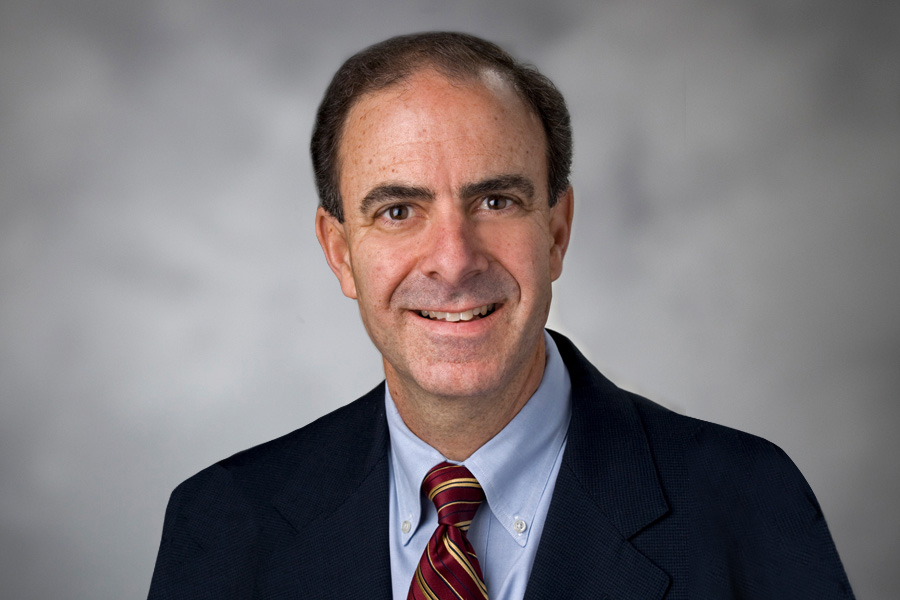What is your current role in health care?
“I have the privilege to serve as the Chief Operating Officer of Advocate Aurora Health, a $14 billion integrated delivery system based in Downers Grove, Illinois, and Milwaukee, Wisconsin. Our footprint includes the eastern third of Wisconsin and Chicagoland. I am responsible for our 26 hospitals, over 300 clinics, and one of the largest post-acute networks in the country.”
What stands out as a favorite memory during your time as an MHA student?
“First off, my favorite professor was Vernon Weckwerth. He helped me think critically and he had a phenomenal sense of humor.
Second, while I was in the Program, I lived with other MHA students from the class ahead of me, in ’83 – Ken Paulus and Paul Scalisi. We had an awesome time together and are lifelong friends.
Third and the best thing that happened to me in the MHA program, is at the beginning of my second year, consulting firms hosted this wonderful social event where I met my wife, Elizabeth Reynolds. She was one year behind me in the class of ’85.”
How has the MHA Program helped prepare you for your career?
“I continue to draw on the problem solving skills and critical thinking that the program helped to foster and really dig into the “why” behind issues.
A second, is the program helped to fuel a lifelong curiosity to learn.
Third, the socialization opportunities that the program enabled were tremendous. It clearly has helped me to build a network of colleagues and friends that I can draw on.”
What challenges and opportunities will healthcare leaders encounter in the next 5-15 years? What skills will leaders need to be successful in light of these challenges and opportunities?
“Winning organizations will become consumer obsessed. Healthcare is trailing other industries, for example retail and banking. We have to become simpler and easier for patients, families, and consumers to access and use us. Second, successful delivery organizations will be highly efficient taking advantage of scale and enabling technology to drive the safety agenda to continue to have outstanding health outcomes and lower the total cost of care. And then third, the new digital front door will be fully integrated into how care is delivered, and there will also be much more complex and advanced care delivered in the home environment. The home will continue to be a critical place where patients are cared for and healed.”
Leaders must be effective at leading, guiding, and managing change. Leaders must also be effective at building teams and organizing efforts to iterate, innovate, and redesign, and then execute against those plans. The fundamentals of leadership will always be similar – as they are enduring characteristics that successful leaders must excel at including developing talent pipelines, advanced problem solving, excellent communication skills, relationship management, financial acumen, delivering results, inspiring others and of course, never compromising core values.”
If you could give one piece of advice to a current student, what would it be?
“Be curious and commit to lifelong learning. When you finish the program, or you complete your fellowship, healthcare offers so much opportunity to be an aggressive learner. Whether it be leadership, the complex business side of what we do, or the advancements in technology and medical care – there is a tremendous amount to learn and keep getting better at.”
Why is your class the best class ever?
“The Class of ‘84, clearly is the best class ever, because there was some groundbreaking research done by one of my classmates, Eugene Lascu. His thesis revealed that the phase of the moon effects emergency room activity. In addition, my class had a great sense of humor. I want to credit Dave Briere who was at the center of it.”

